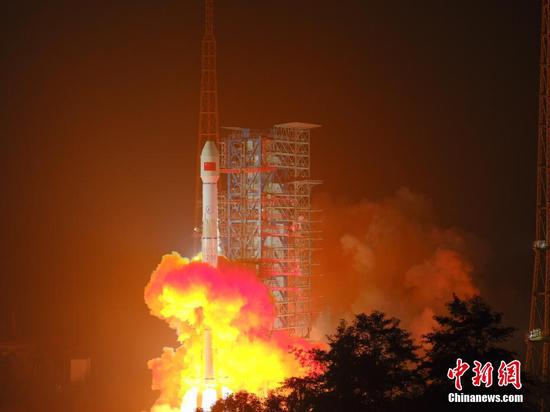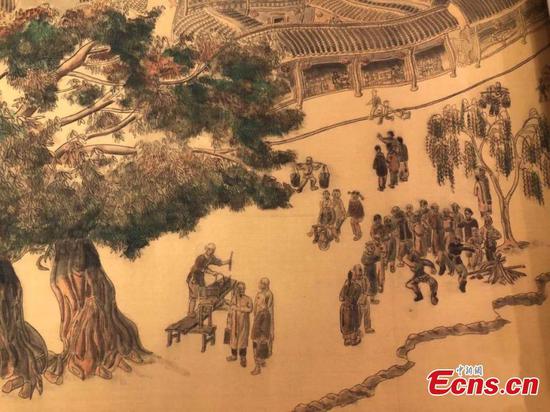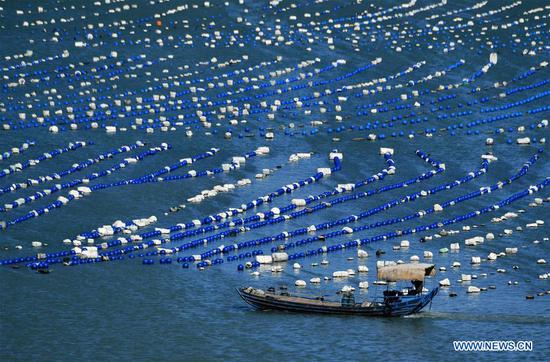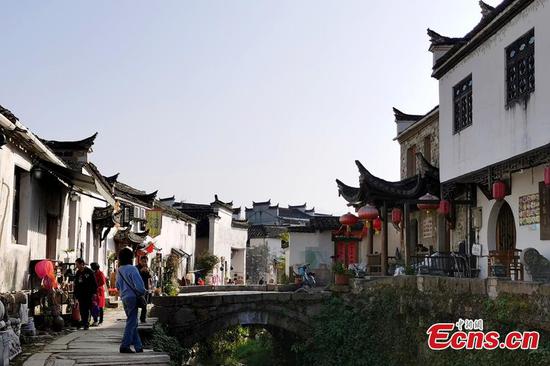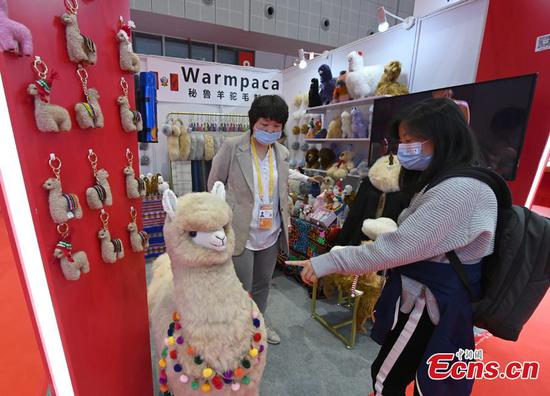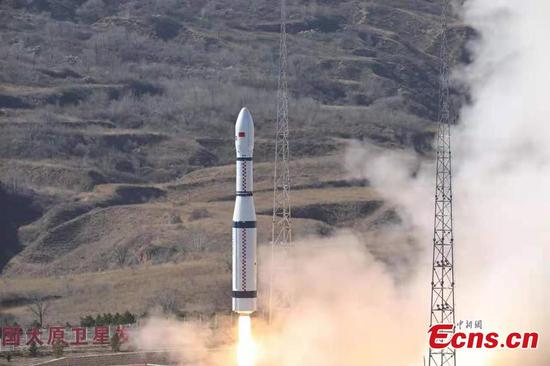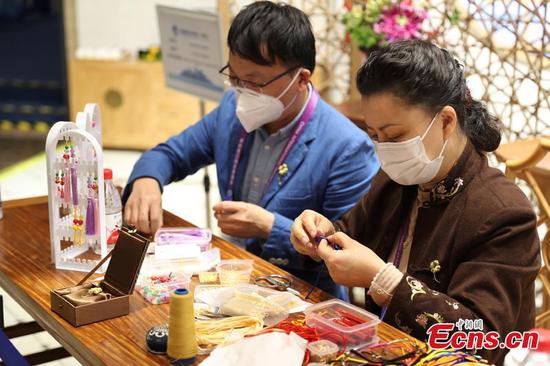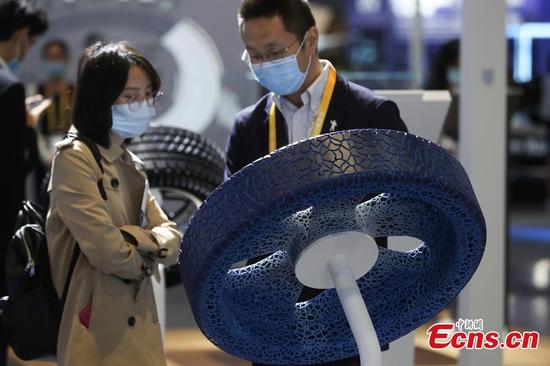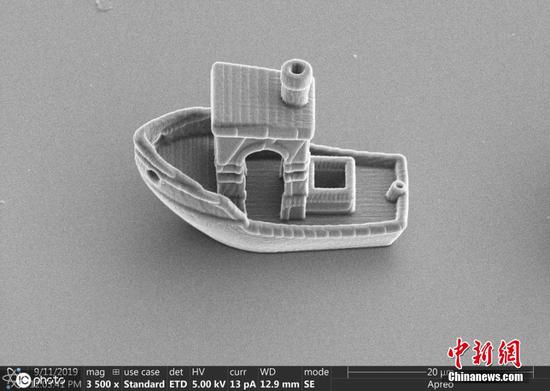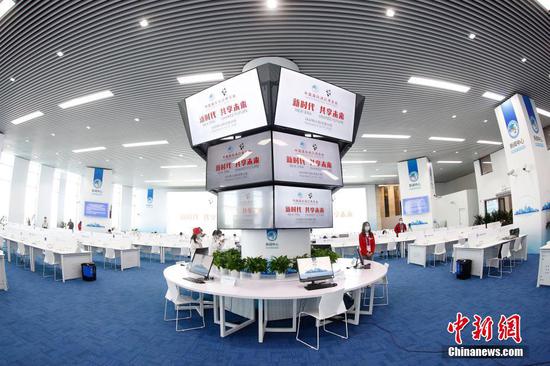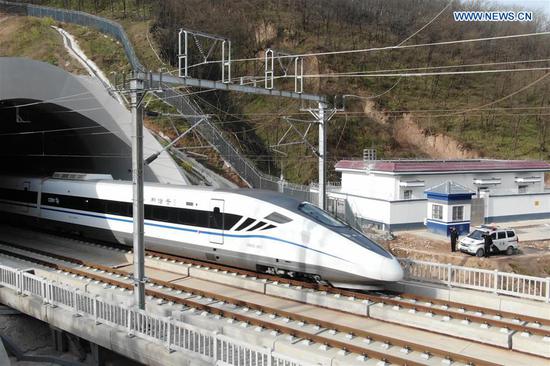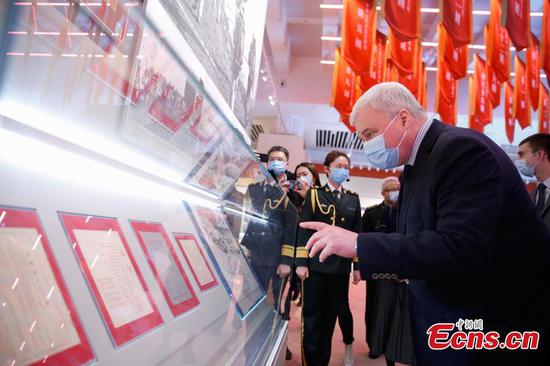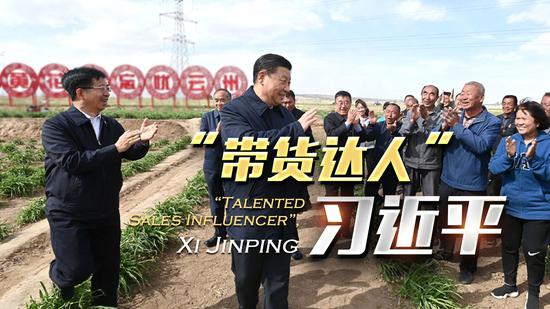
Photo taken on Nov 12, 2020 shows a view of the International Convention Center in Hanoi, capital of Vietnam. (Photo/Xinhua)
Strong signal
The official noted that the RCEP supports the liberalization and facilitation of trade and investment with practical actions. It will boost global economic confidence, and the signing of the pact shows that all members are committed to cutting tariffs, opening markets and lowering barriers.
"It sends a strong signal against unilateralism and protectionism, strongly supports free trade and the multilateral trading system, and contributes to the formation of a positive effect on the global economy," said Wang, adding that it is expected to stimulate global economic recovery after the pandemic.
Thanks to the signing of the RCEP, China and Japan also reached a bilateral tariff reduction arrangement. This historic breakthrough will help promote the realization of a high level of trade liberalization in the region, according to the Ministry of Finance.
Wang said the new business ties with Japan expand China's trade coverage with free-trade partners from the current 27 percent to 35 percent.
The trade value between China and other RCEP members amounted to $1.06 trillion in the first three quarters of this year, accounting for about one-third of China's total foreign trade, according to the Ministry of Commerce.
The RCEP, which contains 20 chapters covering a wide range of categories including goods trade, investment and e-commerce, is a "modern, comprehensive and a high-level win-win agreement", said Wang. Under the deal, members will aim to cut tariffs to zero in the coming decade, according to the Ministry of Finance.
Wang said that the RCEP deal will expand China's export market space, meet the needs of domestic consumption for imported goods, enrich the regional supply and industrial chains, and stabilize foreign trade and investment. It will also be helpful in promoting the "dual-circulation" development pattern, which is centered on the domestic economy and aimed at better integrating the domestic economy with the global economy.
Zhang Jianping, director-general of the China Center for Regional Economic Cooperation, said the sealing of the RCEP deal will build a solid foundation for future negotiations on the China-Japan-South Korea Free Trade Agreement.
Compared with other free-trade agreements in operation across the world, Zhang said the RCEP is a new type of agreement with greater inclusiveness. For example, the agreement not only covers topics such as goods trade, cross-border investment, dispute settlement and trade in services, but also involves new issues such as intellectual property, digital trade, finance and telecommunications.










